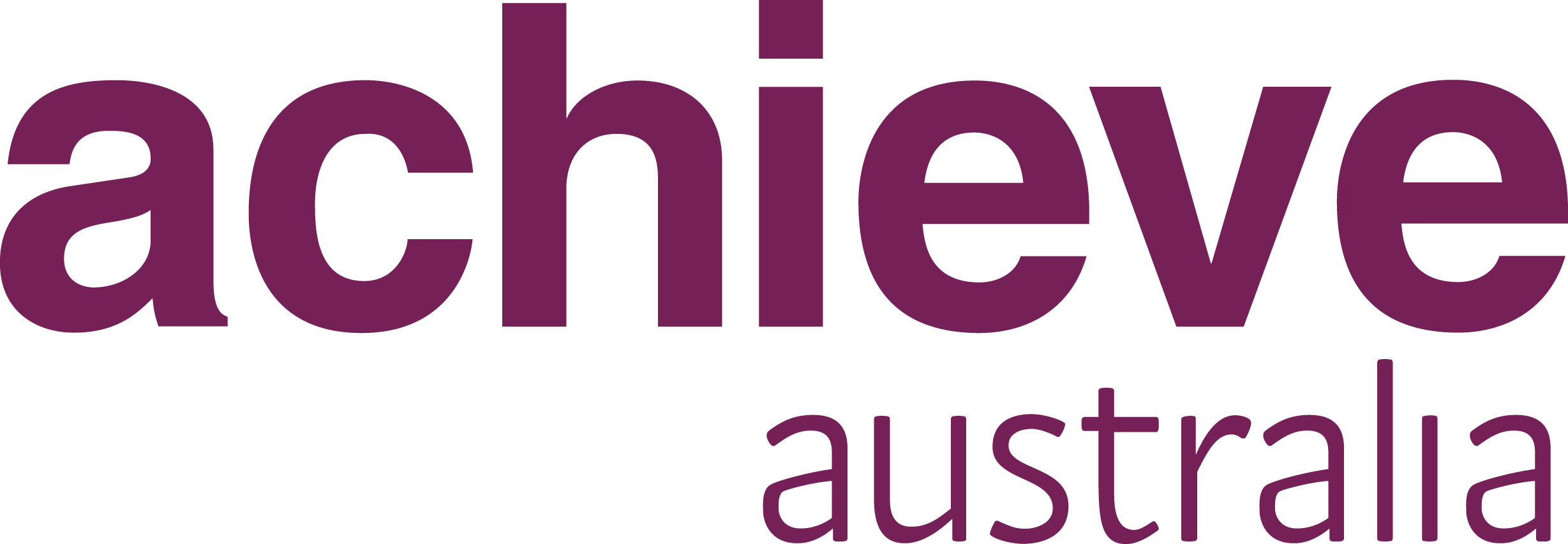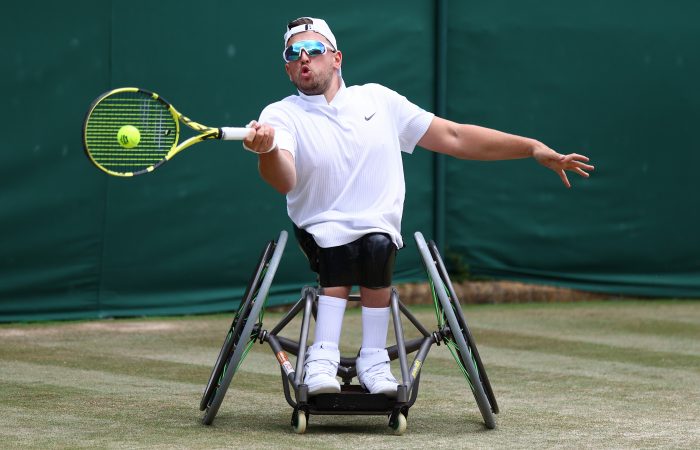17 May 2024
By Achieve Australia Writer and Researcher Fi Bridger
Kurt Fearnley AO is one of my favourite public figures. As a Paralympian, he won 3 gold medals, 2 Commonwealth Games gold medals and competed in more than 40 marathons, including in New York, Chicago and London. So impressive.
Born with spina bifida, a congenital condition that affects the spinal cord and mobility, Kurt’s determination and resilience led him to become one of Australia’s most celebrated athletes. He used this platform to become a fierce disability advocate including hosting the SBS documentary ‘What does Australia really think about disability?’ Kurt Fearnley is currently the Chair of the National Insurance Disability Agency.
And how good is Dylan Alcott AO? A Paralympic gold medallist in wheelchair tennis and wheelchair basketball, Dylan is the only man to win the Golden Slam in quad singles winning all 4 tennis majors (Australian Open, US Open, French Open and Wimbledon) and the Paralympics 2021.
Dylan is also a champion of influencing society to understand and promote social inclusion for PWD using his platforms as a sports star, former Australian of the Year, and successful entrepreneur.
In 2018, I appeared on the ABC television program Q&A and was privileged to meet Dylan. We were discussing how hard it is for PWD to find employment. Not long after we met, he included me in his biography, and I still value his advocacy and friendship today.
I also greatly admire Paralympic Indigenous athletes Amanda Reid, Samantha Schmidt, and Ruby Storm. However, let us all reflect on the additional hurdles they face as women.
Intersectionality is complex. It is worth noting that Dylan is the only man in the wheelchair discipline to win the Golden Slam – 2 women – Dutch player Diede de Groot and Japanese player Shingo Kunieda have as well.
Gender aside, I have wondered many times if we cheer the achievements of athletes with disability with genuine awe, or are we in awe of what they ‘can do’ due to low expectations?
I believe it's a complex mix of both.
On one hand, the achievements of athletes with disabilities evoke genuine awe and admiration. In the same way that we all watch in awe as Simone Biles masters her balance beam routine. We admire elite athletes with disability for their talent, skill, dedication, and the sacrifice they make in spending most of their time training.
PWD are also watched and celebrated with awe in recognition of the significant barriers they overcame to achieve remarkable success.
In essence, PWDs are being watched with awe because society expects less of them - that a PWD would never be able to achieve a feat such as playing tennis or wheelchair basketball.
At this point, I reflect on whether Australian society would accept a work colleague on their basketball team who was a PWD as a routine player. They might be an average player like some able-bodied players are average, and thus the Paralympics may not be that surprising at all. This is not to detract from the achievements of these athletes. But in the able-bodied community, we accept that sport is a regular inclusive part of life, whereas for PWD it is only at an elite level they are seen.
The barrier of low expectations in all areas of life for a PWD was beautifully described in the video, “Assume that I Can!” released on World Down Syndrome Day on 15 March. The video, starring Canadian actress Madison Tevlin, challenges stereotypes and promotes inclusion. If you haven’t seen it, please do. It reminds us that our negative assumptions about people with Down Syndrome can lead us to treat them in such a way that these assumptions become reality. In sociology, this is called a ‘self-fulfilling prophecy’. Why not reverse our perspectives? Viewers are encouraged to adopt a mindset of believing in the potential of every person, regardless of ability, and to support efforts to create a more inclusive and equitable society.
Changing perspectives about people with disabilities is crucial for creating a more inclusive and understanding society. Reversing perspectives is an ongoing process that requires collective effort. By promoting understanding, empathy, and inclusion, we can create a more accepting and supportive society for everyone.
Explore more topics
- Accessibility
- inclusion
- Achieve Australia
- disability
- belonging
- Community
- Employment
- The Sewing Basket
- Advocacy
- disability employment
- Accessible
- My Life My Say
- Celebrating people we support
- NDIS
- 2022
- Meet our Achievers
- blog
- people with disability
- travel
- women with disability
- Art
- Australia
- COVID-19
- Disability services
- Good nutrition
- Guildford
- Health tips
- Mental wellbeing
- NDS
- Sharing milestones
- Sydney
- achievable
- assistance dogs
- depression
- disability communications
- disability inclusion
- election
- employee of the year
- intellectual disability
- motherhood
- pregnancy
- social inclusion
- support workers

